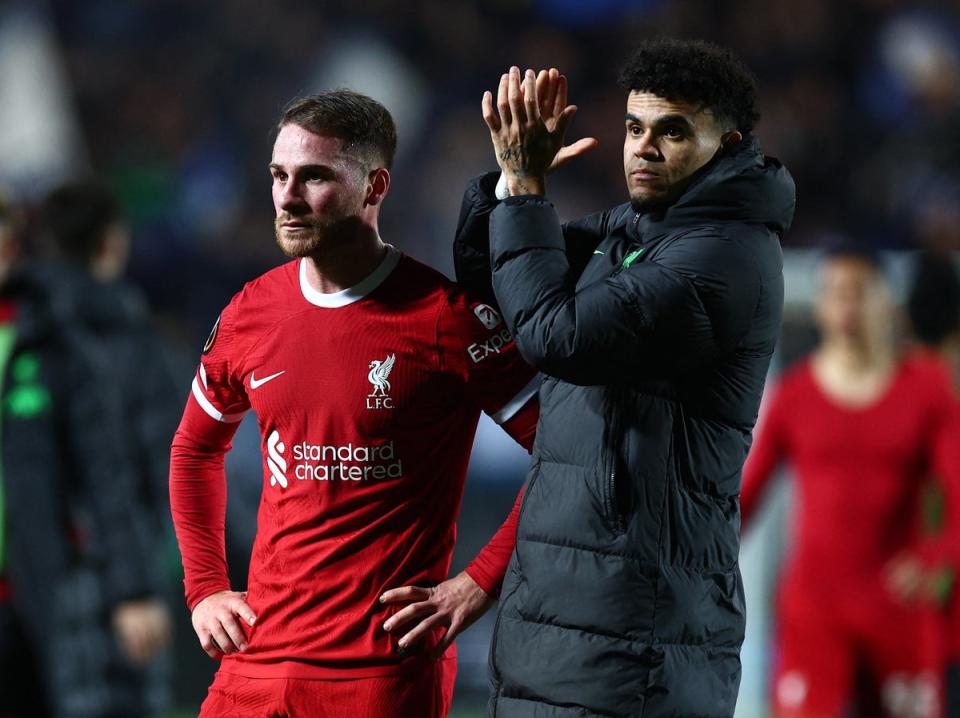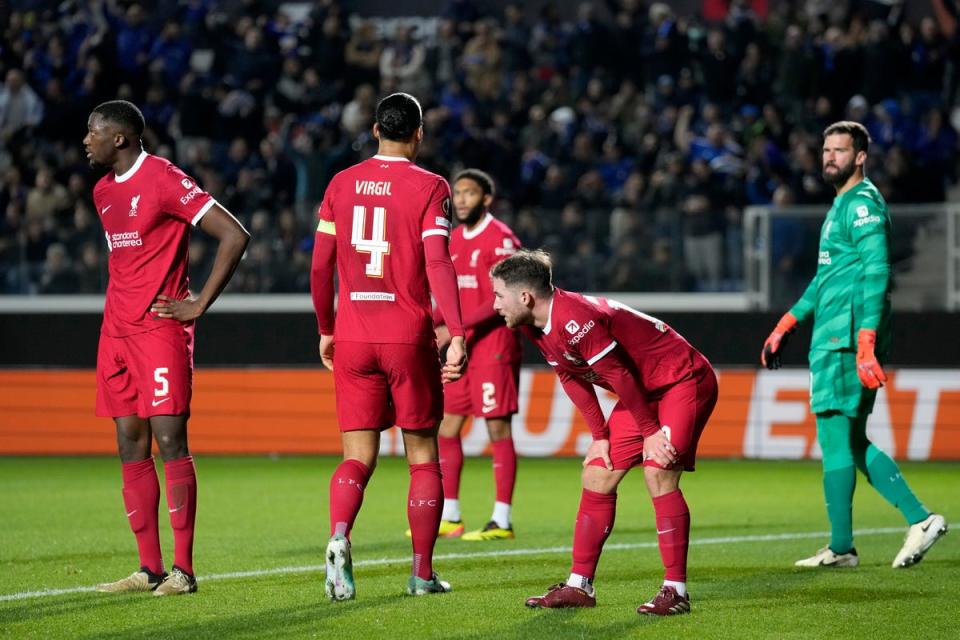Liverpool’s meek Europa League exit reveals wider Mohamed Salah problem

Now the end is near, and Jurgen Klopp didn’t even get to do it his way. There was no last great European comeback, of the type that really made the German’s legacy at Liverpool. The failure to even get close to such a feat against a resolute Atalanta indicates there may not be one last grandstand in the Premier League, either.
Instead, rather than making everyone lament Klopp’s departure when there might be so much more to give, this was just another match that illustrated this era really is “running out of energy”, as he put it.
The great Mohamed Salah almost personifies this. The shadow we saw here wasn’t the player who has illuminated European football for so many seasons. It would be unfair to put too much on him or even Klopp, however. There is something bigger going on here, which led to a performance so unusually low in scale. This was just too much, in a way you don’t usually hear about a Klopp team.
Liverpool just didn’t conjure enough against a canny Atalanta, who more than deserved their place in a Europa League semi-final after a 3-1 aggregate victory. It was all the more impressive given that Liverpool had been gifted an early goal, of exactly the type that often invigorates these ties. Klopp’s side instead just went flat.
That was the most deflating part, which illustrated why this ended it so meekly. There were so many moments where it looked like Liverpool were trying to go through the motions of playing their system, but had forgotten how. It was a team working things out in real time, but never fully doing so.
That is usually a sign of little more than pure fatigue. It was illustrated here by so many misplaced passes or touches at the final moment. That is the other odd thing about the game. Liverpool actually had more than enough chances to go through in the first half alone. They even had the perfect set-up.
And yet, it’s not like they leave with a great sense of regret. This never had the feel of one of those classic games.
Matches like this by now have a canonical approach all of their own, after all. They are a very distinctive type of European game, with that legacy set by so many raucous Champions League comebacks between 2015 and 2019. Liverpool were of course part of the biggest, and know well the steps required.
They completed the first with surprising ease. They got the early goal. After just five minutes, Matteo Ruggeri stuck out a hand as Trent Alexander-Arnold was crossing the ball. It was a remarkable decision, but should have given the referee an easy call. He checked the VAR and the penalty was confirmed.
A moment’s tension could be felt before it was taken, and not just because of Atalanta’s anxiety. There was also Liverpool’s. Having missed in so many ways of late, who could even bank on a penalty? Salah drilled it in, but it was rather central as he seemed to hedge on Juan Musso diving the other way. If the vintage scenario from there is that the conceding team then collapse, that didn’t quite happen. Atalanta responded well. They almost got in numerous times, but had a curious capacity for wildly overhitting crosses.
It only served to make the game even more end to end than in the first leg. Although it couldn’t be said that Atalanta were caving in, since they always play like this, Liverpool did almost have enough chances to win it in the first half alone. Musso was almost playing into their hands by playing so high up the pitch. Virgil van Dijk attempted to catch him out from the halfway line only to snatch at the ball. Salah was given a far better opportunity with a one-on-one but lifted the ball meekly wide.

It was all the worse since it seemed to sit up so perfectly for him. It maybe illustrated why there were nerves before that penalty.
Berat Gjimshiti at least ensured Atalanta’s anxiety didn’t get worse. In what could have proven the crucial moment of this match, he stretched a leg to prevent Liverpool’s best attacking move of the match reaching Luis Diaz just in front of goal. Klopp’s attackers had interlinked brilliantly to work their way into the box, only for the centre-half to poke the ball wide.
This was where Liverpool deviated from the blueprint. They could have done with a second goal coming much sooner. It didn’t actually come at all.
There were so many Liverpool attacks where they took the wrong decision just when it looked like it was going to count. It was Atalanta who instead looked likelier to score. The game just faded away, rather than even burning out.
Dublin on 22 May now becomes Atalanta’s dream. For Liverpool and Klopp, it is just something else that might have been.

